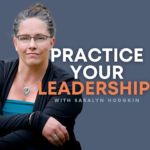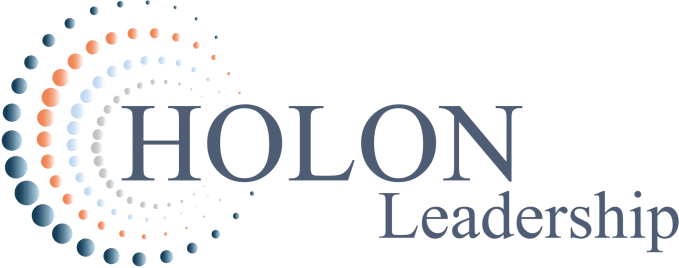Hi, everyone, I’m Saralyn Hodgkin. And this is the podcast to practice your leadership.
Compassion fatigue, it’s a pretty heavy word just in and of itself. One of the things I did was hold a training for some pretty beautiful, impactful humans in Nova Scotia around compassion, fatigue, and I thought I’d share it here because there was a lot of Aha moments that came from the interweaving of understanding burnout, compassion, fatigue, boundaries, self care.
And I just, you know, over over, you know, the COVID days and re entry from COVID, a lot of people are talking about, you know, feeling just really tired, or I’m overwhelmed, or even I’m stressed or even I’m burnt out. But when you start to circle the emotions of all that is felt from nauseous and unsettled, to overwhelmed and threatened and anxious, insecure, depressed, burned out, isolated, and so on, it’s it starts to reveal or what I have seen as a reveal, towards this heavy word around compassion fatigue, in order to just kind of name it.
So let’s just pause here, compassion fatigue, what’s it mean? Charles Figley, the doctor officially a couple decades ago, I think, started defining and terming compassion fatigue as the emotional and physical, the emotional and physical burden created by caring for others in distress. Compassion fatigue, being a caretaker of others, when you also need care.
This describes many of us at different parts of our life. But in in these moments when there are all these different curves of learning and being and stress from the learning how to live with COVID, learning how to come out of COVID, grief cycles, learning to work from home, learning to go back and work at work, learning what it means to just get stuff done in this time of complexity, there’s a lot about, I’m sure you could label off your current context of, of all that you’re going through.
And so let’s have a back layer of that current context and realize, wow, I’m being a caretaker for so many others. And I also need care. So compassion fatigue, some some descriptors about it, you’re absorbing trauma and emotional issues of others. You’re absorbing trauma, and emotional issues of others. You don’t necessarily have the direct exposure to the trauma. You have your own personal stress, and reduced ability to be empathetic. And some people have even termed, I don’t know if you’ve heard of it termed the word empathy fatigue.
And so one of the things that I learned and then I offered in this training was that there are these phases of compassion fatigue, because even just hearing the word compassion fatigue, and the descriptors that I’ve given, it’s like, oh, no, but that’s not me. That’s not me. It’s like, oh, let’s just settle into this a little bit.
Phases of compassion, fatigue, phase one of four, I’m just gonna go the extra mile, I can do it. I’ll just go that extra mile, I got this. Phase two. Kind of irritable, why are they doing that? Ah, irritability. Phase Three. I’m just not going to go, I’m just not going to go to that meeting. I’m just not going to go and show up to that family gathering on zoom or in person. I’m just, and you start to see withdrawal, phase three withdrawal, because you just can’t hold it anymore.
You have this empathy, fatigue and what comes out of that phase for zombie autopilot. And you can imagine just standing, you know, kind of straight up a little bit of the world on your shoulder, I can go that extra mile, and then irritability and you crash a little bit further and then withdrawal and you crash a bit further and then zombie and autopilot, you’re just about on the floor. It’s hard stuff, symptoms of compassion fatigue. What’s the difference with burnout, compassion fatigue gets to a place of where some have said that its symptoms mirror PTSD, right in terms of digestive problems and fatigue and psychological distress and poor concentration and judgment. Some examples are feeling powerless, anxiety, helplessness, distressed, significant increased irritability, maybe you have changes in appetite and sleep or are just easily startled. Maybe you’re losing your way or your purpose or your meaning.
Diminished concentration or pessimism, or maybe just constant recurring of unwanted thoughts that just keep you down. And definitely withdrawing or, or isolating yourself from friends and family, not just, you know, a night, Friday night on Netflix, and you’re not answering your phone, a little bit more than that as we can all know.
But the effects in your leadership is that you’re not showing up in the way that you want, that you need, that aligns with your intentions, quality of work, your ability to foster the impact, the ability to serve all you do, your confidence goes in the in the toilet, and you start losing interest. It’s serious stuff. And sometimes just naming things like compassion fatigue allows us to get some perspective, acknowledging it allows us to say whoa, I’m seeing some signs, I’m seeing the symptoms. I can see some of the triggers, and my personal characteristics or my exposure or my empathy or in the way I show up at work.
I just need to acknowledge it for a minute. Breathe into it, and say, it’s okay. It’s really hard, but it’s okay. I’m normal. I’m not alone. Many other people go through this. Many other people are in this. And I’m in good company because all of us, we deeply care. And we deeply connect with our work. We deeply connect with our identity. And so many of us are vulnerable to compassion fatigue. Okay. Get some perspective, normalize it.
Now, how can you Reality Check your expectations? How can you use I did another podcast on this and you can go into unlocking as Brene Browns called it friggin first times, right? How can you Reality Check your expectations? How can you build in some r&r so that your brain and your emotions and your soul get some rest? And what do you need to just start designing in? How is compassion fatigue showing up for you? Maybe for the team that you work with or or the community that you’re working in?
And most importantly, can you take out a journal and a pen, sit with your feet in the grass or looking out in the snow or whatever season it is for you and ask yourself what could be helpful right now. Because it’s not about doing something more. Or even being more. It’s about setting up some practices that are helpful for you in this moment. Maybe it’s around boundaries, maybe it’s around self care, maybe it’s around some radical self compassion. Because if that compassion doesn’t include yourself, as Buddha says it’s incomplete. So my invitation to you is learn a bit about compassion fatigue. learn a bit about what that means for you and how it’s showing up and journal out what’s helpful right now. Do your work, stay in the practice.
Thanks. I’m Saralyn. You can find me at holonleadership.org. I walk alongside you as you practice your leadership


 Apple Podcasts
Apple Podcasts Spotify
Spotify Google Podcasts
Google Podcasts